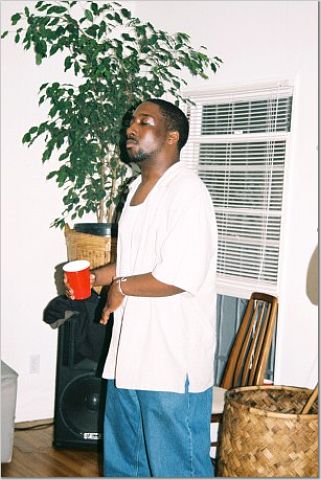Know What
I'm Sayin'??
Sunday, April 02, 2006
A Capitalist Society at Work
I found this article today.
Essentially, Verizon is publishing some generic ads in their Yellow Pages. To use the article's example, under the heading of "taxi" in the book, there is a generic ad that says
The logical hole to poke in this is the confusion it would cause if you find a roofer you like but can't find their business card or leave something in that taxi, but don't remember it until the next day. Tomorrow, that same number might connect you to another company. Verizon has you covered. The system remembers what roofing service or taxi service it connected you to, and the next time you call that number, it connects you to the same business that you worked with, regardless of who's the highest bidder for that day. Pretty smart, huh?
Big V is running the ads on a trial basis in Boston right now, but plan to roll the ads out to over 500 directories this year, with the ads appearing in dozens of categories. The profit potential here boggles the mind.
Wish I'd thought of it.
Know what I'm sayin'??
Essentially, Verizon is publishing some generic ads in their Yellow Pages. To use the article's example, under the heading of "taxi" in the book, there is a generic ad that says
"Need a lift? 24 hour service. 7 days a week...reliable and professional."Sounds pretty boilerplate. Here's the catch: depending on the day you call, you can be connected to any of a number of taxi services when you call the attached number. Your business is being sold to the highest bidder. Depending on the industry, Verizon will get at least $2 per call, and as much as - well, the sky's the limit. That's the beauty of a bidding process. Think about it. It doesn't make sense for a taxi service to pay more than $3 per call or so because the average fare would be what? 25 bucks or so? But...think about it like this: What about a roofing service after a tough storm has passed through town? How much would you pay to make sure that every customer who calls that number for one day talks to you? How about pizza delivery on Superbowl Sunday?
The logical hole to poke in this is the confusion it would cause if you find a roofer you like but can't find their business card or leave something in that taxi, but don't remember it until the next day. Tomorrow, that same number might connect you to another company. Verizon has you covered. The system remembers what roofing service or taxi service it connected you to, and the next time you call that number, it connects you to the same business that you worked with, regardless of who's the highest bidder for that day. Pretty smart, huh?
Big V is running the ads on a trial basis in Boston right now, but plan to roll the ads out to over 500 directories this year, with the ads appearing in dozens of categories. The profit potential here boggles the mind.
Wish I'd thought of it.
Know what I'm sayin'??
About Me

Ah, the perennial favorite - "About Me". I am a bit of a Renaissance Man in a modern world. I enjoy the pleasures of a good book and taking my dog for a walk on a sunny day. I cook dishes with fancy ingredients, and like music with real instruments and at least as much melody as there is bass. HOWEVER I love the promise that technological innovation gives to our future. The convergence of this innovation and our commonplace tasks is inevitable, so get on board, or get run over. Now...I'm a bit conficted about digital cameras. I like the convenience and the "digitalness" of it, but I'm not sure how I feel about the loss of the artistic touch that real film adds. It's...contradictory.
Old Stuff
February 2006March 2006
April 2006
May 2006
June 2006
July 2006
August 2006
September 2006
October 2006
November 2006
December 2006
January 2007
February 2007
March 2007
April 2007
May 2007
June 2007
July 2007
August 2007
September 2007
October 2007
November 2007
December 2007
January 2008
February 2008
March 2008
April 2008
May 2008
June 2008
July 2008
February 2009
March 2009
May 2009
August 2009
